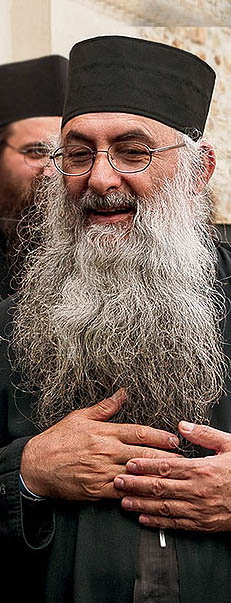 Very Rev. Archimandrite Zacharias (Zacharou)
Very Rev. Archimandrite Zacharias (Zacharou)
All the ordinances of the undefiled Church are offered to the world for the sole purpose of discovering the ‘deep heart’,[1] the centre of man’s hypostasis. According to the Holy Scriptures, God has fashioned every heart in a special way, and each heart is His goal, a place wherein He desires to abide that He may manifest Himself.
Since the kingdom of God is within us,[2] the heart is the battlefield of our salvation, and all ascetic effort is aimed at cleansing it of all filthiness, and preserving it pure before the Lord. ‘Keep thy heart with all diligence; for out of it are the issues of life’, exhorts Solomon, the wise king of Israel.[3] These paths of life pass through man’s heart, and therefore the unquenchable desire of all who ceaselessly seek the Face of the living God is that their heart, once deadened by sin, may be rekindled by His grace.
The heart is the true ‘temple’ of man’s meeting with the Lord. Man’s heart ‘seeketh knowledge’[4] both intellectual and divine, and knows no rest until the Lord of glory comes and abides therein. On His part God, Who is ‘a jealous God’,[5] will not settle for a mere portion of the heart. In the Old Testament we hear His voice crying out, ‘My son, give Me thy heart’;[6] and in the New Testament He commands: ‘Thou shalt love the Lord thy God with all thy heart, and with all thy soul, and with all thy mind, and with all thy strength.’[7] He is the one Who has fashioned the heart of every man in a unique and unrepeatable way, though no heart can contain Him fully because ‘God is greater than our heart’.[8] Nevertheless, when man succeeds in turning his whole heart to God, then God Himself begets it by the incorruptible seed of His word, seals it with His wondrous Name and makes it shine with His perpetual and charismatic presence. He makes it a temple of His Divinity, a temple not made by hands, able to reflect His ‘shape’ and to hearken unto His ‘voice’ and ‘bear’ His Name.[9] In a word, man then fulfils the purpose of his life, the reason for his coming into the transient existence of this world.


